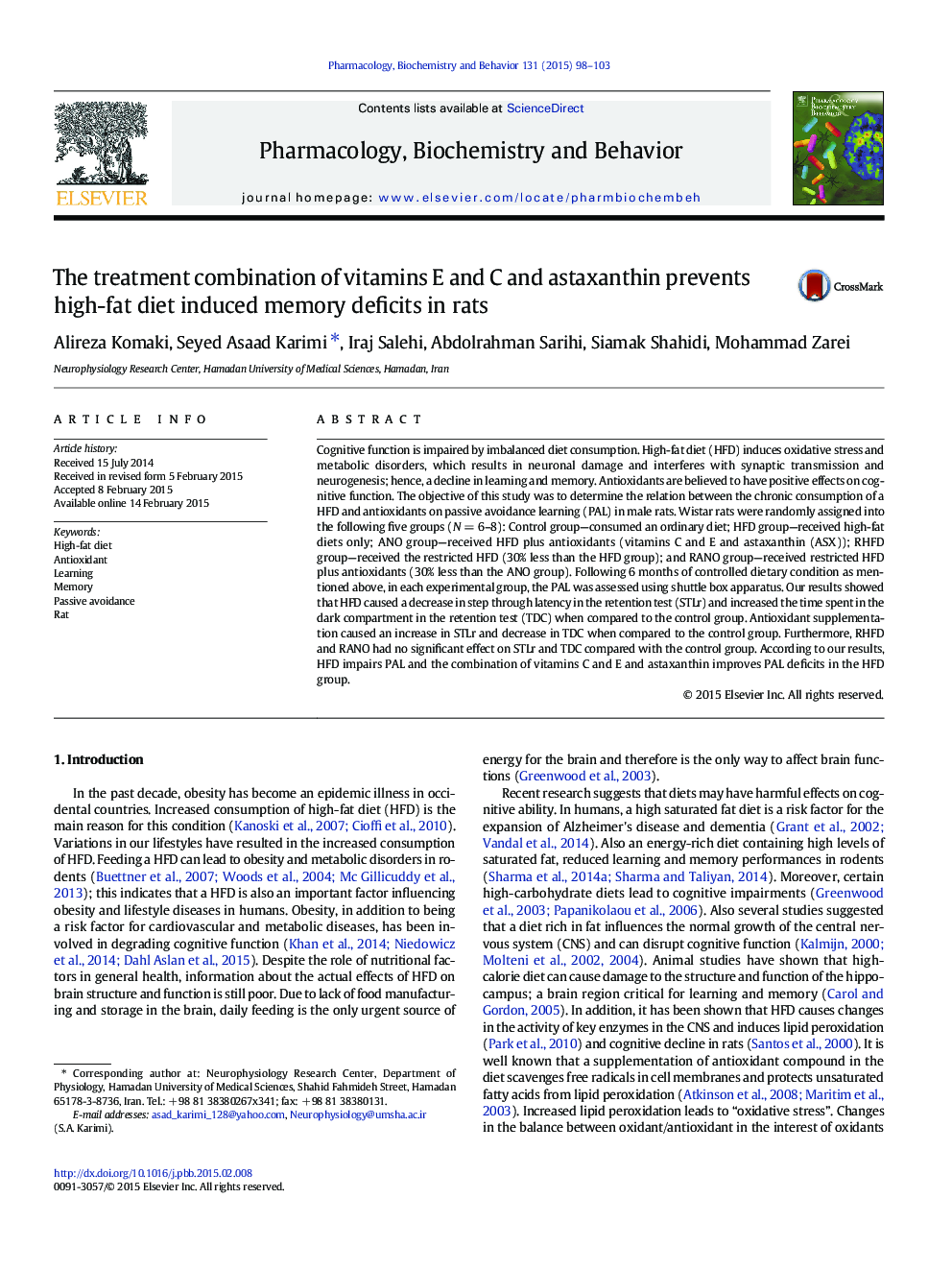| Article ID | Journal | Published Year | Pages | File Type |
|---|---|---|---|---|
| 8350682 | Pharmacology Biochemistry and Behavior | 2015 | 6 Pages |
Abstract
Cognitive function is impaired by imbalanced diet consumption. High-fat diet (HFD) induces oxidative stress and metabolic disorders, which results in neuronal damage and interferes with synaptic transmission and neurogenesis; hence, a decline in learning and memory. Antioxidants are believed to have positive effects on cognitive function. The objective of this study was to determine the relation between the chronic consumption of a HFD and antioxidants on passive avoidance learning (PAL) in male rats. Wistar rats were randomly assigned into the following five groups (NÂ =Â 6-8): Control group-consumed an ordinary diet; HFD group-received high-fat diets only; ANO group-received HFD plus antioxidants (vitamins C and E and astaxanthin (ASX)); RHFD group-received the restricted HFD (30% less than the HFD group); and RANO group-received restricted HFD plus antioxidants (30% less than the ANO group). Following 6Â months of controlled dietary condition as mentioned above, in each experimental group, the PAL was assessed using shuttle box apparatus. Our results showed that HFD caused a decrease in step through latency in the retention test (STLr) and increased the time spent in the dark compartment in the retention test (TDC) when compared to the control group. Antioxidant supplementation caused an increase in STLr and decrease in TDC when compared to the control group. Furthermore, RHFD and RANO had no significant effect on STLr and TDC compared with the control group. According to our results, HFD impairs PAL and the combination of vitamins C and E and astaxanthin improves PAL deficits in the HFD group.
Related Topics
Life Sciences
Biochemistry, Genetics and Molecular Biology
Biochemistry
Authors
Alireza Komaki, Seyed Asaad Karimi, Iraj Salehi, Abdolrahman Sarihi, Siamak Shahidi, Mohammad Zarei,
